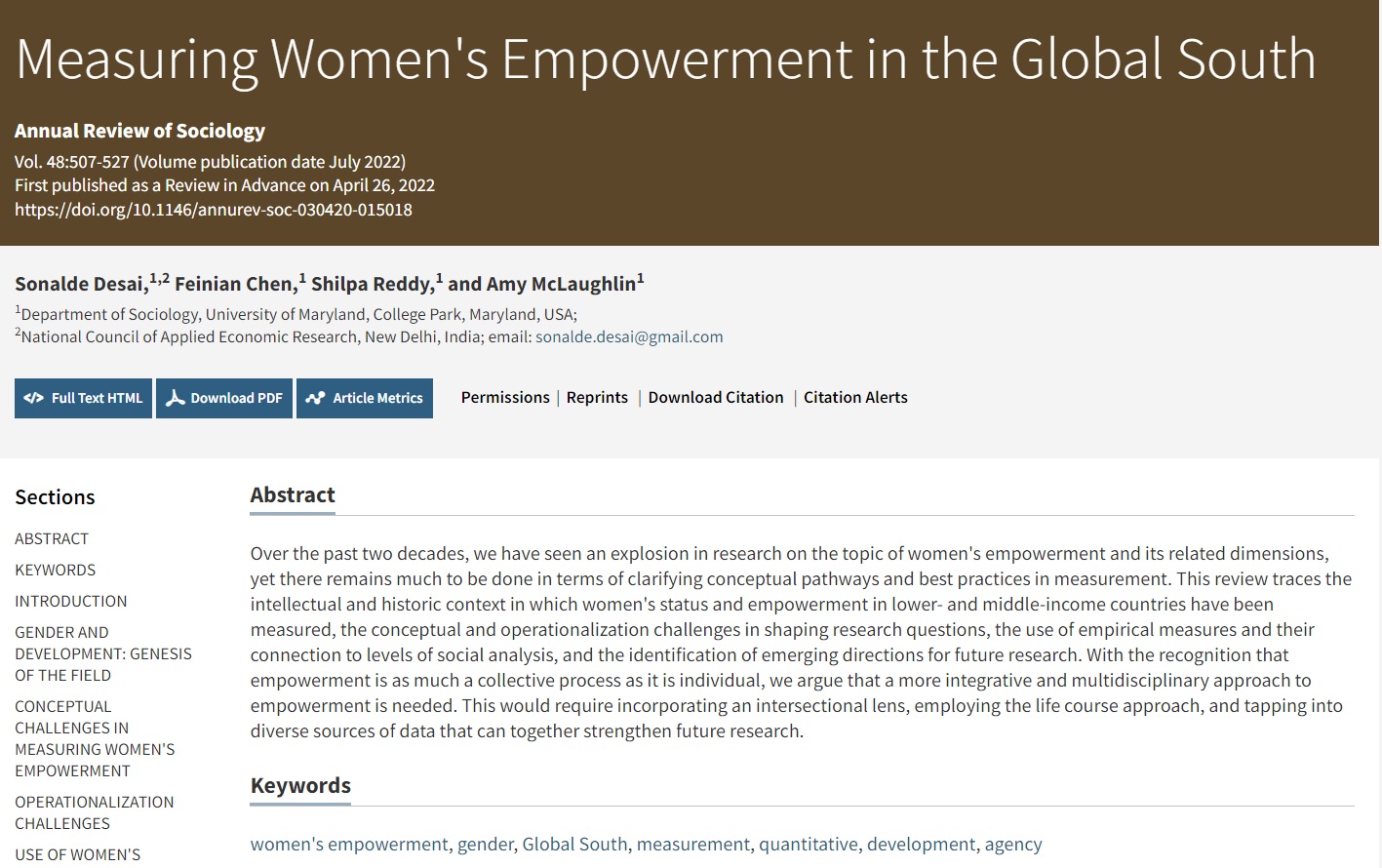
Over the past two decades, we have seen an explosion in research on the topic of women’s empowerment and its related dimensions, yet there remains much to be done in terms of clarifying conceptual pathways and best practices in measurement. This review traces the intellectual and historic context in which women’s status and empowerment in lower- and middle income countries have been measured, the conceptual and operationalization challenges in shaping research questions, the use of empirical measures and their connection to levels of social analysis, and the identification of emerging directions for future research. With the recognition that empowerment is as much a collective process as it is individual, we argue that a more integrative and multidisciplinary approach to empowerment is needed. This would require incorporating an intersectional lens, employing the life course approach, and tapping into diverse sources of data that can together strengthen future research.